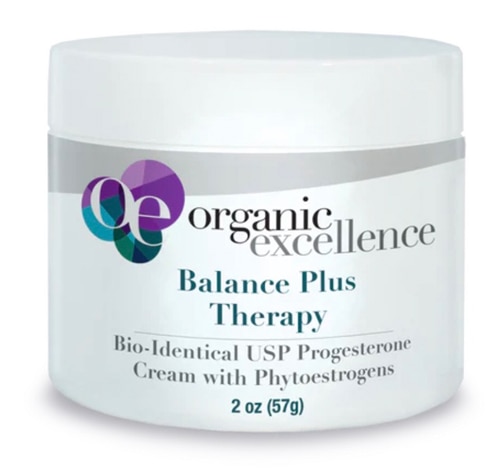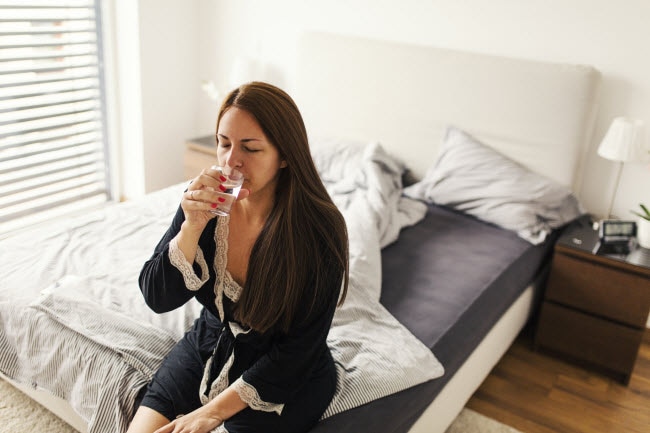Anyone who has ever blazed through a hot flash knows they’re no joke. Synonymous with the onset of menopause, hot flashes—or “flushes”—impact an estimated 75% of women and can last anywhere from seven to fourteen years.
But before you despair, do know that you don’t have to roast your way through the next decade. Natural relief for “nature’s power surges” abounds, allowing you to cool down without medication—or dunking your head in a bathtub of ice. Here are seven of the smartest ways to lower your internal temp:
1. Prioritize fitness
We’re well-aware of the enormous benefits that exercise can have on our mind and bodies. Indeed, the effects of consistent exercise can be so rewarding and revitalizing that no science is needed.
But the science is there—including for women in menopause. Studies summarized in The New York Times revealed that aerobically fit women were better able to regulate their body heat—and, thus, experienced fewer and less intense hot flashes.
That said, the research also indicates that a woman must do more than take a leisurely, 30-minute walk. To genuinely reduce hot flashes, devote yourself to vigorous activity—whether that’s riding a bike, swimming or strength training. Just be sure to do so in a cool environment.
2. Dress—and Sleep—in layers
Sometimes the simplest solutions are also the savviest. Dressing in layers gives you terrific leverage, allowing you to strip off what you need to and when (while still remaining appropriate). Capris, cardigans, scarves and perspiration-wicking fabrics are a menopausal woman’s secret weapon. Likewise, layer your bed with soft, light covers that you can easily remove.
3. Ditch the cigs
If you smoke, quit. Not only does smoking wreak serious havoc on your overall health, but studies show that it can also heighten the likelihood and severity of hot flashes, “possibly due to changes in estrogen metabolism,” says Janet S. Carpenter, PhD and associate dean for research at the Indiana School of Nursing. The National Cancer Institute (NCI) provides free counseling and support services for anyone who wants to stop smoking.
4. Focus on hydration
Frosty lemonades are seriously sought during summer for a reason: Hydration helps decrease your internal temperature while also giving you the replenishment you need after perspiring. This is especially critical during menopause. As Kate Bracy, RN, NP puts it, “Your body’s cooling system is operating within a thin margin of error during menopause, and a critical component of managing that system is providing enough water to keep the system cool.” Aim to drink at least 48 ounces of water per day.
5. Moderate your caffeine intake
Preliminary research out of the Mayo Clinic demonstrates that your daily latte may exacerbate hot flashes and the night sweats that often accompany them. (Interestingly enough, caffeine may actually be good for perimenopausal woman, who showed a boost in mood and memory from caffeine.) To naturally bolster your energy, return to #1.
6. Nix the spices
Curry, jalapenos, wasabi—we all know that spicy foods can impact us from head to toe. And while this may feel like a boon during winter or when you have a cold (to say nothing of the dynamism they add to dishes), these foods and other spicy eats can backfire throughout menopause. Your internal temp is already high; it’s best to not stoke the fire. Rather, fill your plate with cooling foods, such as fresh fruit, cucumbers and watercress.
7. Beware of booze
The research can be confusing, to be sure—research published on Menopause.org shows that women who drink moderately have stronger bones than non-drinkers (at and after menopause)—but reducing your alcohol consumption or ditching it altogether may lead to fewer and less acute hot flashes. Just think about it: The warmth created by a glass of wine can feel like a downright fever at this time of life. What’s more, alcohol brims with empty calories that can add inches to your waistline. Which brings us to our next point…
8. Aim for—and maintain—your ideal weight
A new study reviewed by The North American Menopause Society reveals that hot flashes are associated with a higher body mass index (BMI). As NAMS executive director Dr. JoAnn Pinkerton says, “This study supports earlier studies that found that women who are heavier tend to have more hot flashes, particularly close to menopause. In some studies, but not all, weight loss and exercise have both been shown to reduce hot flashes in women who are obese, thus giving women even more reason to create a healthier lifestyle for themselves.”
To this end, commit yourself to a diet of whole, nutritious foods, limit or eliminate sugar and refined carbs (which can also sway mood), and up your consumption of hormone-balancing foods such as soy, buckwheat, collard greens, black beans and flaxseeds—a phytoestrogen-rich food that has been shown to ease hot flashes.
9. Supplement with vitamin and herbs
Vitamin E, chaste tree berry, red clover and yam phytoestrogens should all have a place in a menopausal woman’s remedy chest. But to deal specifically with hot flashes, consider taking a black cohosh supplement. Also called “fairy root” and “black snakeroot,” this North American herb may provide organic relief for a flushed face and a body on fire. You might also want to consider maca. This Peruvian herb is an excellent alternative to hormone replacement therapy because of its ability to stimulate your hormonal system and enhance your production of estrogen and other hormones, thereby leading to fewer and less brutal hot flashes. (Bonus points: Maca also supports your adrenal glands and stress hormone levels, and it might support a healthy sex drive.)†
10. Give acupuncture a try
Research on the efficacy of acupuncture and hot flashes tends to be mixed. One study, out of the University of Melbourne, demonstrated that women received relief from “sham” acupuncture, thereby signifying the placebo effect it can have on some. But another study found that electroacupuncture, which utilizes a small electrical current, was more effective at treating hot flashes than the drug gabapentin. In any case, consider giving this ancient technique a try. The mere act of treatment in a quiet room may provide you with just the respite—and coolness—you need.
†These statements have not been approved by the Food and Drug Administration. These products are not intended to diagnose, treat, cure or prevent disease.




